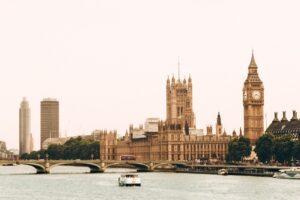Yesterday, Liz Truss was announced as the next Prime Minister and is now facing calls to urgently address the cost of living crisis.
Truss beat her competitor, former Chancellor Rishi Sunak, with 81,326 votes compared to 60,339 votes respectively.
The country is facing a devastating energy crisis, with Ofgem’s price cap now sitting at £3,549 and prices are set to rise even further when the price cap increases again in January.
Independent energy efficiency organisation, Energy Saving Trust, says Truss must consider retrofit schemes, which could permanently reduce energy bills by an average of £1,000 a year.

Mike Thornton, chief executive of Energy Saving Trust, said: ‘Liz Truss takes the helm as Prime Minister during the worst energy crisis in a generation. She must urgently prioritise addressing energy security and affordability, whilst continuing to reduce carbon emissions to maintain a liveable environment for the future.
‘With October’s energy price rises set to overtake existing support, we must see emergency measures that provide adequate assistance for those who cannot afford to pay their bills.’
The organisation says investment in renewable energy is crucial to enable an affordable energy transition and reduce the risk of surging prices in the future.
The planning industry has also reacted to the appointment of Liz Truss, as she has made clear her views on development, telling the Daily Express she would ‘rip up red tape that’s holding back housebuilding and give more power to local communities.’
Grant Leggett, Director and Head of Boyer’s London office said this statement was ‘about as big an oxymoron as you’ll read anywhere.’
He said: ‘10/10 political-speak. Up there with literally ripping up policy by introducing a NPPF in 2012 but at the same time creating multiple new strictures through Localism. This is sound-bite-ism and nothing new. Indeed, this sort of rhetoric and the great planning White Paper of 2020 sought to do just this, but was arguably the beginning of the previous PM’s downfall.’
Ananya Banerjee, Director and Head of Design, Boyer said he believed Liz Truss would immediately face difficulties appeasing Conservative party members who voted her in and ‘red wall’ voters she needs to retain power at the next election.
He said: ‘One set of planning policies will suit one, and one the other: suspension of housing targets, ‘listening to communities’ and the protection of greenfield sites in the south; infrastructure and investment in the north. Balancing the two will be tough.’
‘We may be in a recession within a year’s time. We need to invest tax payers’ money in well thought out national infrastructure including energy, highways and better cycling network. My recommendation would be the NIC to be incorporated within the Department for Levelling up to bring together infrastructure, housing energy and climate change under one roof. This could remove the contention element of large-scale planning applications i.e. ‘impact’ from local politics and have answers ready and in delivery mode before opposition groups start to delay matters. This would allow for the Bournevilles and new market towns, creating homes and jobs, responding to the housing crisis quickly and in doing so, providing a new sustainable, green and circular economy for all.’
Photo by Ugur Akdemir













